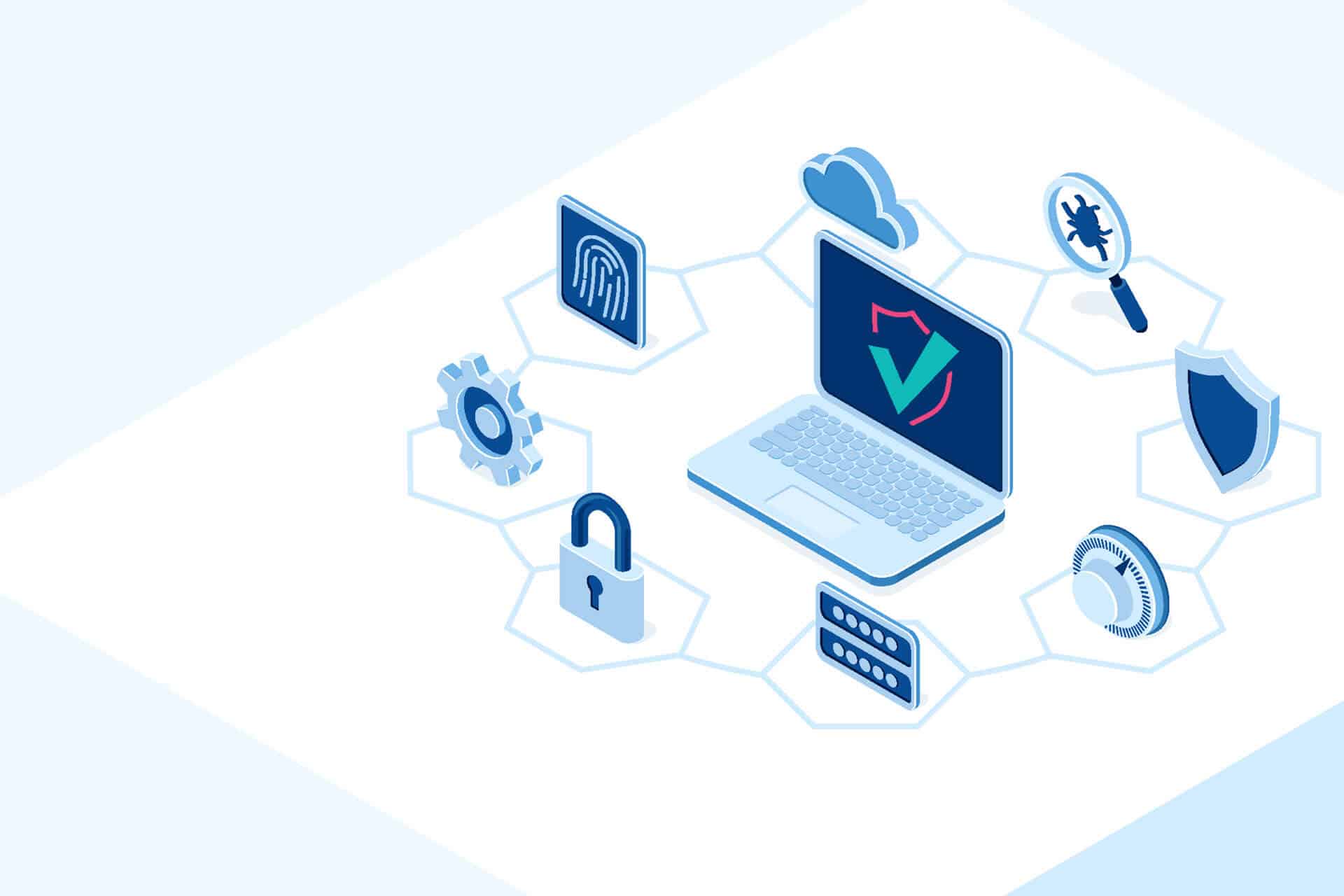Businesses today require robust and proactive cybersecurity measures to navigate their digital interactions. Managed security service providers (MSSPs) are emerging as robust solutions against a variety of security threats, from phishing attacks to ransomware and DDoS attacks.
This article explains everything you need to know about managed security service providers, the services they offer, and how to manage and deploy their technologies to protect your data.

What Is a Managed Security Service Provider?
A managed security service provider (MSSP) outsources cybersecurity services to businesses and organizations to protect them against security threats. An MSSP provides continuous monitoring and management of security systems and devices, which is essential for detecting and responding to potential threats before they cause damage.
Aside from these services, MSSPs also provide solutions for compliance management, security assessments, and disaster recovery. This allows businesses to focus on their operations without worrying about security, especially if they lack internal resources or expertise to manage complex security infrastructures.
Learn how a security operations center benefits businesses and ensures the security and continuity of business operations.
MSP vs. MSSP
Managed service providers (MSPs) and managed security service providers (MSSPs) offer outsourced services to businesses, but their areas of expertise are vastly different.
MSPs provide a wide range of IT services, such as network, application, and infrastructure management. They oversee the functionality and efficiency of IT systems, handling day-to-day support and maintenance operations.
On the other hand, MSSPs specifically deal with cybersecurity. They provide cyber protection, continuous monitoring, efficient threat response, and compliance management for businesses.

What Kind of Services Does an MSSP Offer?
MSSPs provide various services that guarantee advanced cybersecurity. These services include:
- Continuous monitoring and management to detect and respond to threats as soon as they occur.
- Threat detection and response to malware, ransomware, and phishing attacks.
- Firewall management and configuration to prevent unauthorized access and data breaches.
- Intrusion detection and prevention of unauthorized access to company systems.
- Vulnerability scanning to detect weak spots in the company's systems before they are exploited by cyber criminals.
- Endpoint protection from cyber threats of devices used for business operations. This includes the protection of laptops, desktops, and mobile devices.
- Compliance management for organizations to comply with GDPR, HIPAA, and PCI-DSS regulations.
- Security Information and Event Management (SIEM) to protect networks and applications by analyzing security alerts in real-time.
- Data protection and encryption for safeguarding sensitive data from cyber threats.
- Incident response and forensics for handling and analyzing security breaches and attacks.
- Risk assessment and management of the organization's cybersecurity practices.
- Security awareness training for all personnel to recognize and prevent cyberattacks.
What Security Technologies Are Managed and Deployed by MSSPs?
MSSPs manage and deploy the following technologies:
- Firewalls. They act as a barrier between trusted and untrusted networks and monitor traffic to prevent unauthorized access.
- Intrusion Detection and Prevention Systems (IDPS). They monitor network and system activities to detect and block malicious movement or security policy violations.
- Antivirus and anti-malware software. This software detects malware, including viruses, worms, and ransomware, and prevents them from penetrating the systems.
- Security Information and Event Management (SIEM) systems. They provide real-time analytics of security alerts for a timely response to security threats.
- Data Loss Prevention (DLP) technologies. These solutions prevent sensitive data from leaving the network, including intellectual property and personal data.
- Encryption tools. MSSPs protect data at rest (on a device) and in transit (over the network).
- Vulnerability management tools. These tools scan, assess, and manage vulnerabilities to mitigate potential security weaknesses.
- Endpoint Protection Platforms (EPPs). These platforms secure endpoint devices from cyber threats.
- Virtual Private Networks (VPNs). They establish a secure connection on the internet, including secure remote access to company data and systems.
- Identity and Access Management (IAM) systems. They manage digital identities and user access to IT resources through authentication, authorization, and user activity monitoring.
- Cloud security solutions. MSSPs provide specialized security services for cloud environments, including access controls, data storage solutions, and monitoring.
Learn about the most important cloud services every MSP should offer.

Managed Security Service Provider Benefits
There are many benefits of managed security service providers.
1. High Level of Expertise
MSSPs bring advanced cybersecurity expertise to organizations, crucial for understanding and mitigating potential threats. Many organizations lack personnel with sufficient knowledge, so an MSSP helps them introduce advanced security technologies to their systems.
MSSPs offer services across various industries and tailor their solutions to specific scenarios. Their dedicated security personnel can address issues promptly and efficiently, and recognize potential threats before they happen and cause damage. This experience is equally beneficial to big enterprises, as well as to small and medium organizations that do not have the resources to address cyber threats with in-house solutions.
2. Cost-effectiveness
Partnering with an MSSP is more cost-effective than having an in-house cybersecurity team. For example, MSSPs offer easy and efficient scalability that helps organizations reduce the overhead costs of hiring, training, and managing security staff. They ensure that all resources are utilized to their full capacity, depending on the size and specific business needs of each organization.
In addition, MSSPs guarantee that only the most advanced and high-tech security solutions and infrastructures are in place. This approach assists organizations with compliance by ensuring that their threat mitigation solutions follow the industry’s regulatory standards.
3. Continuous Monitoring and Rapid Response
Constant monitoring is crucial for early detection and resolution of potential security issues. This reduces the likelihood of breaches and disasters that disrupt business continuity. 24/7 monitoring is often challenging to do in-house without skilled security personnel. Therefore, many organizations opt to hire third-party experts, such as MSSPs.
If an incident occurs, MSSPs are equipped to respond rapidly to remediate issues. This minimizes the impact of security breaches and reduces downtime for company operations. MSSPs swiftly implement security remediation measures after identifying the issues before they escalate into serious problems.
4. Compliance and Regulatory Assistance
Many organizations operate under strict regulatory requirements for their industry. MSSPs are well-versed in these regulations and are able to provide security assistance in accordance with GDPR, HIPAA, and PCI-DSS.
To ensure compliance, MSSPs conduct regular audits and assessments of security policies and practices. They regularly report on their findings to avoid possible fines or legal repercussions associated with non-compliance. This practice ensures trust with customers and vendors.
5. Scalability
MSSPs offer easy scalability according to specific business needs. The level and scope of security can be adjusted as organizations grow and their workloads fluctuate to ensure resources are never underutilized.
More importantly, MSSPs are highly vigilant against the changing landscape of security threats. As they evolve, MSSPs revise and improve their security tools and solutions to respond accurately and timely to these threats. This includes both advancing their security policies and educating staff to respond to potential issues before they escalate.
6. Access to Advanced Technologies
MSSPs provide access to advanced technologies for organizations that seek robust security solutions. They heavily invest in cutting-edge security tools and systems such as firewalls, intrusion detection systems, and sophisticated threat intelligence platforms. Organizations that partner with an MSSP have access to advanced solutions at a much lower price than they would if they had set up their own security teams and systems.
To ensure they are always at the top of their game, MSSPs regularly update and optimize their technologies. They assemble teams dedicated to monitoring and evaluating the latest technologies to ensure they continuously evolve as cyber threats become more vigilant. This way, businesses can focus on their operations without worrying about the underlying security infrastructure.
7. Risk Management and Reduction
MSSPs provide effective risk management that begins with a thorough assessment of the client’s current security infrastructure. This helps them detect vulnerabilities before leveraging their expertise and advanced tools to mitigate risks. After the assessment, MSSPs design specific strategies to identify risks and accurately respond to evolving threats that are constantly emerging.
MSSPs constantly monitor traffic, user activities, and system logs to detect threats before they turn into serious security breaches. By implementing security strategies immediately, they minimize the likelihood of future attacks. This way, MSSPs help organizations preserve their reputation with customers and clients.
8. Focused IT Resources
MSSPs provide more effective resource allocation, especially with complex and time-consuming cybersecurity tasks. Many organizations have limited staff dedicated to this area, so managing a full spectrum of cybersecurity can be challenging. MSSPs can stay updated with the latest threats and promptly maintain and upgrade the security systems. This way, the organization focuses solely on improving its operational efficiency.
The use of focused IT resources contributes to more effective budget planning. Since MSSPs utilize their own personnel and infrastructure, your organization saves money and time by not managing and maintaining systems in-house.
9. Customized Security Services
MSSPs provide customized security services for all organizations. Depending on the organization’s size, business needs, budgets, etc., they handle various potential security threats in accordance with the compliance standards of specific industries. MSSPs understand the context in which the organization operates and anticipate potential security threats.
Customization also applies to the level of services and support. The services can be scaled up or down based on demand and business growth, and relocated to tackle specific projects. This flexibility ensures organizations are not overburdened with unnecessary services or left vulnerable due to inadequate attention.
10. Enhanced Incident Preparedness
MSSPs enhance an organization’s preparedness for security incidents by implementing specific and robust incident response plans. They define roles and responsibilities and outline clear strategies for tackling security incidents.
They also monitor and detect suspicious activity that can escalate into a security incident. This is often backed by artificial intelligence and machine learning solutions that focus on identifying complex and subtle threats. MSSPs also provide continuous support during and after the incident to analyze its forensics and understand the cause of the issue.

How to Choose an MSSP?
There are several things to consider when choosing an MSSP, including:
- Experience and reputation that an MSSP holds in the digital community and the specific industry in which the organization operates.
- Range of services an MSSP offers and if they fit the organization’s business needs.
- Technology and tools used for threat monitoring, incident response, and compliance management.
- Customization and scalability that fit the organization’s size and operations.
- Compliance expertise for adequately addressing and satisfying regulatory standards.
- Communication and reporting about all suspicious activities, as well as detailed reporting of security incidents.
- Response capabilities during and after the security incident.
- Cost structure, including the pricing model, to check if it aligns with the organization’s budget.
- Data privacy and security, including robust policies and practices for handling sensitive and confidential information.
- Customer support, including availability and responsiveness to queries.Top of Form
The Lighthouse of Digital Safety
As cyber threats become more advanced, MSSPs are emerging as suitable solutions for handling these challenges. No matter the organization’s size and industry, MSSPs can address security incidents with accuracy, dedication, and the most advanced technology solutions.



